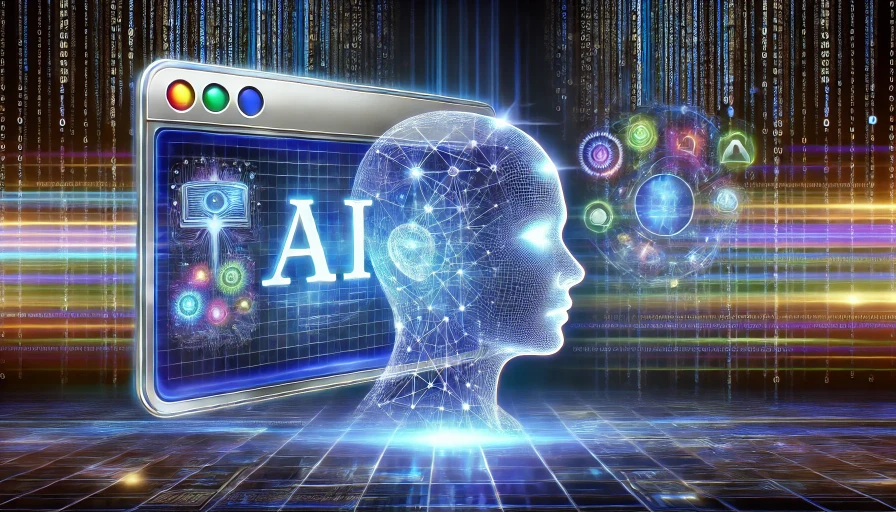The Impact of AI: A New Era of Knowledge and Automation
In today’s digital world, Artificial Intelligence (AI) has become a game-changer. AI not only enhances automation but also transforms how we access and process knowledge. Many of us still rely on searching for articles in web browsers, yet AI already possesses vast amounts of structured knowledge.
Think about it—why waste time scrolling through unclear or redundant articles when AI can instantly provide precise answers? Instead of just consuming information, why not create our own AI? Today, we’ll start by building a simple AI that responds to a basic command.
1. Why AI is Replacing Traditional Web Search
Here are a few reasons why AI is revolutionizing knowledge retrieval:
- Instant Answers: AI can provide direct and accurate responses without needing to browse multiple sources.
- Comprehensive Knowledge: AI learns from a vast dataset, reducing the need to manually search for articles.
- Time Efficiency: AI eliminates unnecessary reading by summarizing key points instantly.
- Automation: AI can integrate with applications to automate tasks, saving valuable time.
Now, let’s take the first step toward building our own AI assistant!
2. Creating a Simple AI that Responds to a Command
To begin, let’s build an AI that responds to "Hello World!" with "Yes, This Is Me. This Is My World."
2.1 Writing the AI Code
class SimpleAI:
def respond(self, message):
if message.lower() == "hello world!":
return "Yes, This Is Me. This Is My World."
else:
return "I am still learning."
# Example usage:
ai = SimpleAI()
user_input = input("Say something: ")
print(ai.respond(user_input))
How it works: This simple AI checks if the user says "Hello World!". If so, it responds with "Yes, This Is Me. This Is My World." Otherwise, it replies with "I am still learning."
3. Training AI to Answer More Complex Questions
AI becomes more useful when it can answer multiple questions. Let’s enhance it:
class SmartAI:
responses = {
"hello world!": "Yes, This Is Me. This Is My World.",
"what is ai?": "AI stands for Artificial Intelligence, the future of automation and knowledge.",
"who created you?": "I was created by a curious mind exploring AI development."
}
def respond(self, message):
return self.responses.get(message.lower(), "I'm still learning. Ask me something else!")
# Example usage:
ai = SmartAI()
user_input = input("Ask me anything: ")
print(ai.respond(user_input))
Now, the AI can answer different questions! This is a step towards building a more intelligent system.
4. The Future: AI as Your Personal Knowledge Engine
Imagine an AI that can:
- ✅ Answer any question instantly.
- ✅ Summarize complex information in seconds.
- ✅ Automate office tasks and streamline workflows.
- ✅ Assist in decision-making with real-time data analysis.
This is why AI is no longer just a tool—it is becoming the ultimate knowledge assistant, replacing traditional web browsing.
Conclusion
While browsing articles was once the standard way to learn, AI has changed the game. Instead of searching for information, we can now create our own AI-powered assistants to provide accurate, instant answers.
By starting small—like building an AI that responds to simple phrases—we can gradually develop smarter systems that revolutionize how we work and learn.
So, do we still need to search for articles manually? Maybe not! It’s time to build and train our own AI for the future.


 5:49 AM
5:49 AM








